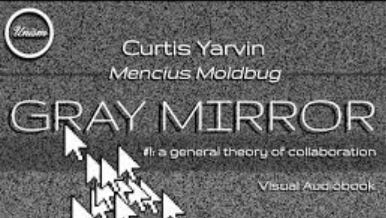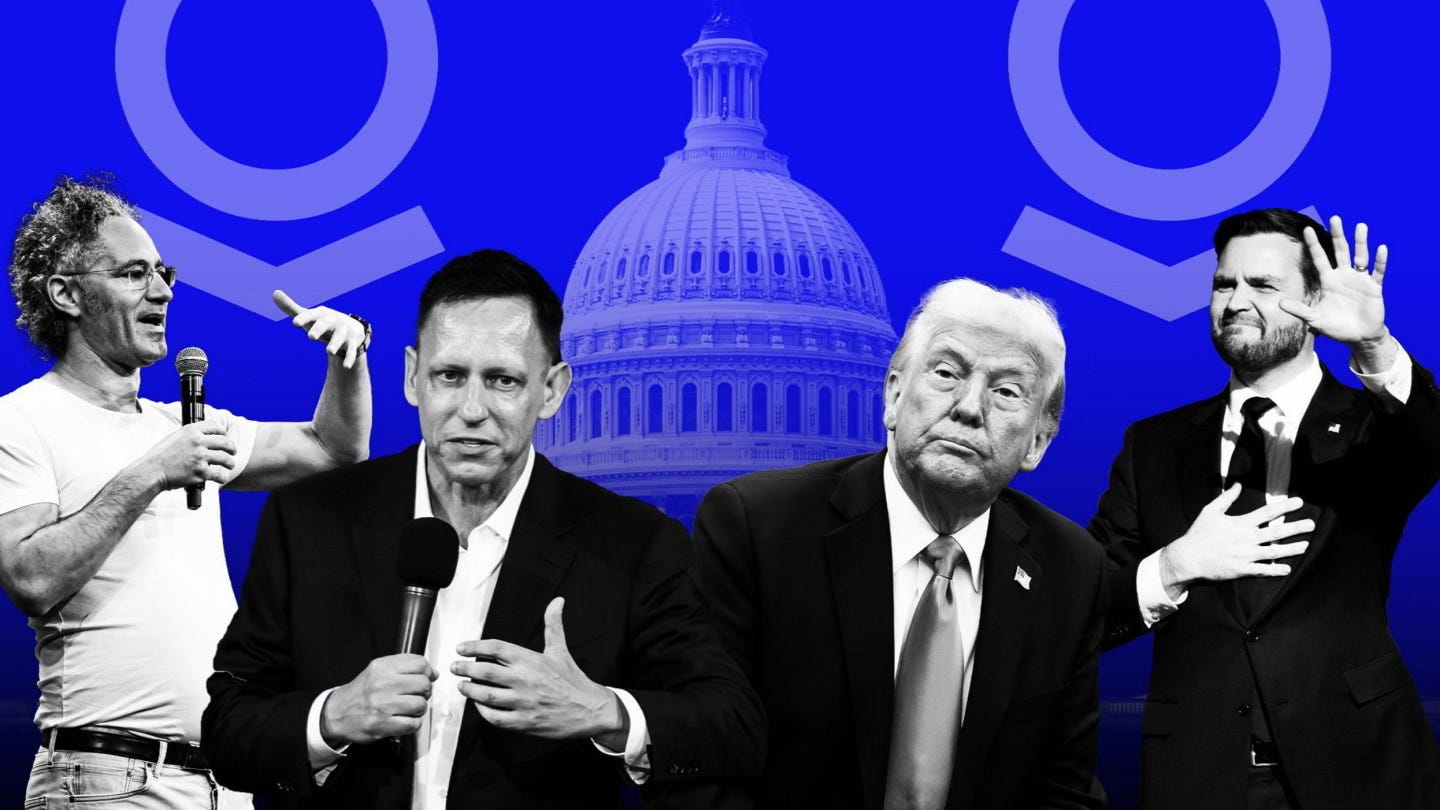Who is Curtis Yarvin and Why is He One of the Most Important Thinkers Behind the 2024 Election?
So who is Curtis Guy Yarvin?
Curtis Guy Yarvin was born in 1973 in the United States to an educated, liberal, and secular jewish family. He attended Brown University from 1988 to 1992 before enrolling in a PhD program in computer science at UC Berkeley. However, after a year and a half, he left academia to join the tech industry.
During the 1990s, Yarvin was deeply influenced by the libertarian tech culture of Silicon Valley. He became particularly drawn to the works of right-wing and conservative American thinkers. Glenn Reynolds, a libertarian law professor at the University of Tennessee, introduced him to Austrian School economists like Ludwig von Mises and Murray Rothbard. Their rejection of empiricism in favor of deductive reasoning from first principles significantly shaped Yarvins intellectual approach.
Yarvin is best known for writing under the pseudonym Mencius Moldbug, a combination of the classical Chinese philosopher Mencius and a play on Goldbug (a reference to hard-money advocates). Alongside philosopher Nick Land, Yarvin played a key role in founding the Dark Enlightenment or neo-reactionary movement (NRx), an ideology that rejects egalitarianism and democracy in favor of centralized, hierarchical governance.
From 2007 to 2014, Yarvin wrote Unqualified Reservations, a blog where he laid out his critiques of democracy and liberalism. In 2020, he returned to writing on his Gray Mirror Substack, continuing to advocate for what he calls a „Techno-Monarchist“ System where governance operates like a corporation, run by an efficient, accountable executive rather than elected officials.
Yarvin has been described as a neo-reactionary, neo-monarchist, and neo-feudalist who views liberal democracy as a Matrix-like system of control. His goal is not reform but total replacement: a new regime structured around hierarchical authority, technological governance, and corporate-style efficiency.
Having this in mind now id like to explain further this ideology so as my readers might understand the severity of it.
The Dark Enlightenment (or NRx) is a radical critique of modernity that emerged in the early 21st century. It represents a rejection of progressive values and democracy, arguing instead for a return to hierarchical and authoritarian governance.
Core Principles of the Dark Enlightenment
1. Critique of Democracy
As Yarvin and other neo-reactionaries argue that democracy is inherently flawed, leading to inefficiency, corruption, and populism.
He advocates for a „Techno-Monarchy” a governance model where a strong, centralized authority replaces democratic institutions, much like a CEO governs a corporation.
2. Push for Hierarchical Structures
The movement promotes rigid social and political hierarchies, believing that structured authority is more effective than egalitarianism.
Liberal democracy, in their view, leads to mediocrity and chaos by prioritizing equality over competence.
3. Accelerationism
Neo-reactionaries, influenced by accelerationist thought, argue that capitalism and technological advancement should be intensified to expedite societal transformation.
Figures like Elon Musk, Marc Andreessen, and other Silicon Valley elites resonate with this idea, seeing technological disruption as a way to reshape governance.
4. Rejection of Modernism
The Dark Enlightenment opposes secularism, progressive governance, and egalitarian ethics, seeing them as disconnected from reality.Instead, it looks to historical models of authority and stability, favoring monarchy, aristocracy, or technocratic rule.
5. Technological Optimism
Technology is seen as the ultimate tool for governance. Yarvin envisions a world where AI and data-driven systems replace bureaucracies, creating a highly efficient ruling structure. This reflects a techno-feudalist vision, where power is concentrated in the hands of a few elite decision-makers controlling advanced technological systems.
The „Cathedral“ and Total Control
Yarvin famously coined the term „The Cathedral“ to describe the informal network of institutions”elite universities, the media, the bureaucracy” that shape public perception and enforce progressive ideology.
Under a neo-reactionary framework, the new Cathedral would be a centralized ruling entity, absorbing all major societal functions traditionally managed by separate government ministries, including:
Culture and media
Education
Law enforcement
Economic planning
Surveillance and technological oversight
A small group of Overlords ”the ruling elite”would control this system, shaping public perception while keeping the masses in a state of unconscious submission. The most intelligent individuals from the general population would be selected, not for leadership, but for highly technical and subservient roles under the ruling class, composed of oligarchs and shareholders.
At the heart of this structure would be an advanced, sentient AI, fully controlled by the elite. This AI would oversee governance, ensuring 24/7 surveillance and suppressing dissent before it can materialize. Meanwhile, the general populace would be led to believe they are living in a liberal society, while in reality, they are under total control, aligned with transhumanist ideals.
Over time, national identities would dissolve as people become homogenized through genetic modification and technological enhancement. This AI-driven system would not merely govern people”it would dictate their very existence, leaving them incapable of imagining an alternative.
Political Implications
The rise of Dark Enlightenment ideas has significant implications for the U.S. political landscape:
1. Polarization and Populism
The rejection of democracy and advocacy for hierarchical governance resonate with rising populist movements that challenge traditional political norms.
2. Influence on Right-Wing Politics
The movement has influenced factions within the right, fostering a shift toward authoritarian-leaning governance model.
While it may appear to align with right-wing populism, it ultimately follows a right-libertarian, elite-driven approach”one that does not necessarily serve the interests of core national populations.
3. Techno-Feudalism
Critics warn that these ideas could lead to a future where a few powerful tech entities dominate governance, effectively creating a new ruling class that controls every aspect of life.
Why is Curtis Yarvin So Important in the 2024 Election?
Yarvins influence has permeated the tech elite, particularly among figures who played a key role in shaping the 2024 election:
JD Vance, a venture capitalist-turned-senator and close associate of Peter Thiel, has shown interest in Yarvins ideas.
Peter Thiel, the billionaire tech investor, has long been associated with Yarvins network, who is a close friend of yarvin and maybe the mentoree of Yarvin.
Elon Musk, a right-leaning libertarian with a techno-optimist outlook, has increasingly aligned with Yarvins critiques of democracy and governance.
Marc Andreessen, a major Silicon Valley investor, has echoed themes of accelerationism and technological governance in his writings.
Nick Land, a British philosopher and one of Yarvins intellectual counterparts, has provided the theoretical groundwork for accelerationist and neo-reactionary ideas.
The Architect of the Future Regime?
Yarvin has positioned himself as the philosopher behind a new political paradigm one that fuses right-libertarianism, techno-feudalism, and authoritarianism into a single coherent vision. While Donald Trump may be the Trojan Horse of this movement, the real power lies with Silicon Valleys elite, who see themselves as the true architects of the future.
In Conclusion:
Curtis Yarvins influence on the 2024 election is not just „theoretical” it is actively shaping the political and technological landscape. His ideas challenge the foundations of democracy, advocating for a future where centralized authority and advanced technology dictate governance. As Silicon Valley elites continue to embrace these concepts, it is essential to understand their implications for the future of society.
The question is no longer whether these ideas will shape the future, but to what extent. And what will the impact be for the core populations of the countries in the West.





